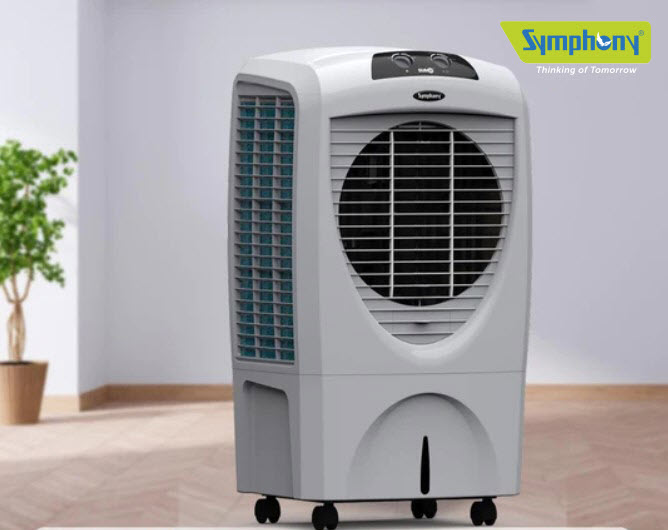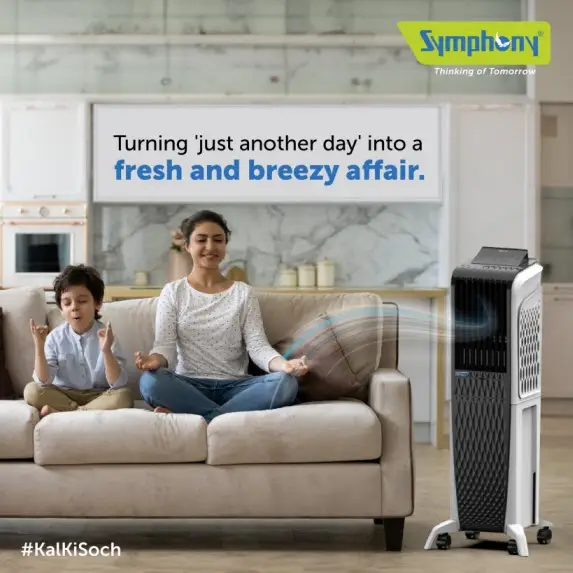Indoor air quality is a crucial aspect of overall health and well-being, yet it’s often overlooked. Poor air quality can lead to a variety of health issues, ranging from respiratory problems to allergies and even more serious conditions over time. Fortunately, there are effective solutions available to improve air quality in your home, and one such solution is the use of air coolers. In this comprehensive guide, we’ll explore how air coolers can be utilized to enhance the air quality in your home and create a healthier living environment for you and your family.
Understanding Air Quality
Air quality refers to the condition of the air within and around buildings, particularly as it relates to the health and comfort of occupants. It encompasses various factors, including the presence of pollutants such as dust, pollen, pet dander, mold spores, and volatile organic compounds (VOCs). These pollutants can originate from indoor sources such as cooking, cleaning products, and furniture, as well as outdoor sources like vehicle emissions and industrial activities.
Poor indoor air quality can have significant implications for health, exacerbating respiratory conditions such as asthma and allergies, causing irritation to the eyes, nose, and throat, and contributing to fatigue and other health issues. Therefore, improving indoor air quality is essential for creating a safe and healthy living environment.
Why to Choose Air Cooler to Improve Indoor Air Quality?
Air coolers offer several advantages for improving indoor air quality. Unlike traditional air conditioners, which recirculate stale air, air coolers work by drawing in fresh outdoor air, passing it through a moistened filter or pad, and then circulating the cooled air throughout the room. This process helps to increase humidity levels, filter out airborne particles, and remove odors, resulting in cleaner, fresher air.
One of the main benefits of air coolers is their energy efficiency. Compared to air conditioners, which consume a significant amount of electricity, air coolers use much less energy, making them a more environmentally friendly and cost-effective cooling solution. Additionally, air coolers do not require the use of refrigerants, which can be harmful to the environment and contribute to global warming.
Air coolers come in a variety of types and designs, including portable units, window-mounted units, and whole-house systems. Each type has its own set of advantages and limitations, so it’s essential to weigh your options carefully. Look for features such as adjustable fan speeds, oscillation, and remote control capabilities for added convenience and customization.
Enhancing Air Quality with Air Cooler
Air coolers play a significant role in enhancing indoor air quality by filtering out airborne particles and increasing humidity levels. The moistened filter or pad in the air cooler traps dust, pollen, and other pollutants, preventing them from circulating in the air and causing respiratory irritation. Additionally, the cooling effect of the air cooler helps to alleviate discomfort on hot days and create a more pleasant indoor environment.
To maximize the effectiveness of your air cooler for air quality improvement, consider using it in conjunction with other strategies such as proper ventilation, indoor plants, and regular cleaning to reduce indoor air pollutants. By incorporating these complementary measures, you can create a healthier and more comfortable living space for you and your family.

Enhancing Air Quality with Air Cooler
Air coolers play a significant role in enhancing indoor air quality by filtering out airborne particles and increasing humidity levels. The moistened filter or pad in the air cooler traps dust, pollen, and other pollutants, preventing them from circulating in the air and causing respiratory irritation. Additionally, the cooling effect of the air cooler helps to alleviate discomfort on hot days and create a more pleasant indoor environment.
To maximize the effectiveness of your air cooler for air quality improvement, consider using it in conjunction with other strategies such as proper ventilation, indoor plants, and regular cleaning to reduce indoor air pollutants. By incorporating these complementary measures, you can create a healthier and more comfortable living space for you and your family.
Additional Strategies for Air Quality Improvement
In addition to using an air cooler, there are several other strategies you can implement to further improve indoor air quality. Ventilation is key to promoting air circulation and reducing the buildup of indoor air pollutants. Open windows and doors whenever possible to let fresh air in and allow stale air to escape.
Indoor plants can also help to purify the air by absorbing carbon dioxide and releasing oxygen, as well as filtering out harmful pollutants. Some plants, such as spider plants, peace lilies, and snake plants, are particularly effective at removing toxins from the air and can thrive indoors with minimal maintenance.
Making lifestyle changes can also have a significant impact on indoor air quality. Avoid smoking indoors, minimize the use of harsh chemical cleaners and air fresheners, and regularly clean and vacuum to reduce the buildup of dust and allergens. By taking these proactive steps, you can create a healthier and more enjoyable indoor environment for yourself and your loved ones.
Monitoring Air Quality
Regular monitoring of indoor air quality is essential for identifying potential issues and taking appropriate corrective actions. There are various tools and devices available for measuring air quality, ranging from simple handheld monitors to more advanced smart sensors that provide real-time data and insights.
When monitoring air quality, pay attention to indicators such as particulate matter (PM), carbon dioxide (CO2) levels, humidity, and temperature. If you notice any abnormalities or sudden changes in air quality, investigate the possible causes and take steps to address them promptly. By staying vigilant and proactive, you can maintain a healthy indoor environment and ensure the well-being of your household.

Addressing Specific Concerns
Air coolers can be particularly beneficial for individuals with allergies or asthma, as they help to remove allergens and irritants from the air, providing relief from symptoms such as sneezing, coughing, and congestion. By using an air cooler in conjunction with other allergy management strategies such as allergen-proof bedding and regular cleaning, you can create a more comfortable and allergen-free environment for allergy sufferers.
Additionally, air coolers can be effective for neutralizing odors and freshening indoor air, making them ideal for use in kitchens, bathrooms, and other areas prone to lingering smells. The cooling effect of the air cooler helps to dissipate odors and create a more pleasant and inviting atmosphere, without the need for chemical air fresheners or candles.
During certain times of the year, such as allergy season or periods of high humidity, indoor air quality can be particularly challenging to maintain. Air coolers can help to alleviate these seasonal challenges by reducing pollen levels, controlling humidity, and providing relief from the discomfort of hot, muggy weather. By using an air cooler strategically, you can create a more comfortable and healthy indoor environment year-round.
Future Trends in Air Quality Improvement
As awareness of the importance of indoor air quality continues to grow, so too does the demand for innovative solutions to improve air quality in homes and buildings. Emerging technologies such as advanced filtration systems, smart sensors, and internet-of-things (IoT) connectivity are poised to revolutionize the way we monitor and manage indoor air quality.
In the coming years, we can expect to see an increase in the integration of these technologies into air cooling and purification systems, making them more intelligent, efficient, and user-friendly. From automated air quality monitoring and analysis to personalized recommendations for air quality improvement, the future of indoor air quality management looks promising.
Conclusion
In conclusion, improving air quality in your home using an air cooler is a simple yet effective way to create a healthier and more comfortable living environment for you and your family. By understanding the factors that contribute to indoor air pollution and implementing strategies to address them, you can enjoy the benefits of clean, fresh air year-round. Whether you’re dealing with allergies, asthma, odors, or seasonal discomfort, an air cooler can help to alleviate symptoms and enhance your quality of life. Take control of your indoor air quality today and breathe easier tomorrow.
